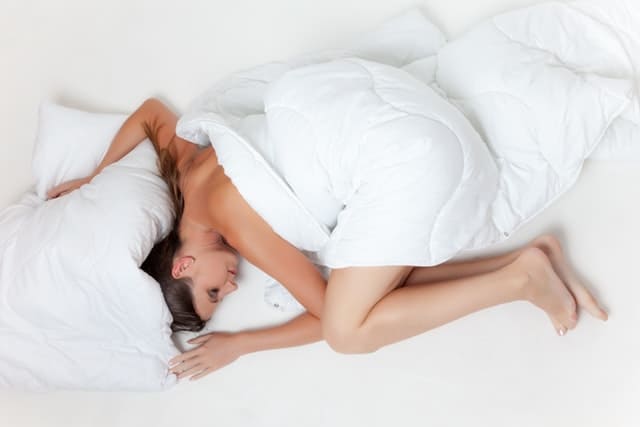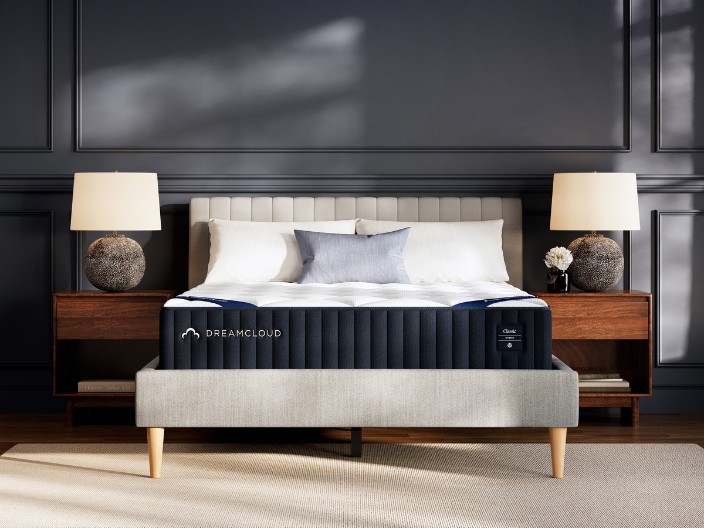What Is Sleep Hygiene?
Share
Fact checked
Reviewed by experts
Updated
January 12, 2023
Quick read
4 mins to read
List of Content
Good sleep hygiene consists of building a routine and an environment that allows you to sleep deeply every single night. Most people who sleep well will tell you that they have a sleep hygiene checklist that consists of a bedtime routine and creating a cozy sleeping space that allows them to fix a sleep schedule.
If you aren’t aware of your sleep hygiene, then this article is for you. Here we’ll explore the need for good sleep hygiene and how you can adjust your daily routine to improve your sleep.
What Is Sleep Hygiene?
Sleep hygiene is simply practicing better sleeping habits. Good sleep hygiene makes all the difference to your sleep. It is essential for your mental and physical health, plus it increases the overall quality of sleep.
Did you know, nearly 70 million Americans have a sleep disorder? That’s a high number. Having poor sleep hygiene could be the possible reason for suffering from sleep issues.
So, how does sleep hygiene affect you? It is not just the sleep habits that can decrease your sleep quality, daily routine, food eating habits, etc. These two are responsible for you struggling to sleep every night.
Importance of Sleep Hygiene
Inadequate or poor sleep hygiene can lead to many sleep and health issues. Poor sleep drains your mental abilities and puts your physical well-being at risk. Experts believe that poor sleep habits might be the cause of these health issues.
Mood changes – Poor sleep can change your mood and make you angry easily. It can also lead to increased anxiety and depression.
Memory issues – when you sleep, your brain forms connections that help you remember memories. Lack of sleep can affect your ability to remember and process information.
Poor concentration – When you don’t get enough sleep, your ability to concentrate, be creative, and solve problems decreases.
Diabetes – Sleep is important to release insulin in the body. Poor sleep hygiene can mess with insulin levels and can increase the chances of diabetes.
Weak immunity – When we sleep, the body repairs itself overnight and builds immunity. Lack of sleep can be the cause of weak immunity.
Weight gain – If you have poor sleeping habits then, you are likely to gain weight.
Cardiac issues – Sleep is necessary for the body to rest and restore its natural settings. When you do not sleep regularly, you might develop cardiac problems.
If you notice any of these signs frequently, then you know for sure that you have messy sleeping habits. Now, we know, what you might think, ‘how to get better sleep’ for that, you need to follow good sleep hygiene.
How to Practice Good Sleep Hygiene?

To be honest, the benefits of sleep are many, and one must not take sleep for granted. If you have improper sleeping habits then you can correct those by following these sleep hygiene techniques. These techniques will tell you how to maintain your sleep hygiene for the better.
- Avoid taking naps – Sleeping during the day can be the reason you find it difficult to sleep at night. Avoid taking naps to regulate your sleep.
- Set a bedtime routine – The best way to regulate your sleep is to pick a sleep routine. You should hit the bed around 10 pm to get 8-9 hours of sleep.
- Workout – Working out is the best way to spend excess energy. When you work out, you sleep better.
- Keep the room comfortable – Comfort is the key to falling asleep. Make sure you have the right room or have set it accordingly.
- Adjust the lights – Light can also make a lot of difference. Some people like to sleep in the dark while others like dim light. Adjust your bedroom lighting accordingly to ensure a good sleep.
- Choose the right mattress – The right mattress can make all the difference in the world. You have to be comfortable while you sleep or else you won’t be able to get a good night’s rest. Make sure you choose a mattress that suits you and supports the body evenly.
- Avoid caffeine during nights – Everyone knows that caffeine is called an energy drink and keeps you awake at night if you have it before bedtime. Try not to indulge in caffeine at least 5-6 hours before bed.
- Say no to electronics – Try the digital detox 1-2 hours before bedtime, this will help you sleep better. As the blue lights emitted from the screens tend to push your sleep further.
- Eat healthy – Avoid eating heavy or too much during the evenings. As a bedtime schedule, your food should be light and filling at the same time.
These are some possible ways to improve sleep. Mastering these sleep hygiene tips could help you regulate your sleep for good. It can also reduce physical issues and lower the risk of developing any health issues.
Can Sleep Hygiene Be the Same for Everyone?
Everyone has different choices, likes, dislikes, and routines, so everyone won’t be able to follow the same routine. Every sleeper has a trait that he/she needs to stick to. You should define your own sleep schedule and see what works best for you. You might not be able to sleep at 10 pm or follow a morning routine, but working out could fit in your routine.
Sleep hygiene for kids could be different from adults and needs to be implemented from the start. For kids, just following a bedtime routine could really help them in getting quality sleep.
The main idea here is to follow healthy sleeping habits to get a good night’s sleep. There are many things to help you sleep, like indulging in healthy food or avoiding heavy meals at night.
You need to make your routine and practice healthy sleeping habits every day. This will surely help you in the long run.
Conclusion
Now that you know the importance of sleep hygiene and the secret of sleeping longer every night, you can practice some of these tips for better sleep. Understanding your routine and sleep traits will help you structure and implement a healthy sleep routine.
If you still feel these sleep hygiene strategies are not working and stay awake till 2 am, you should consult a physician right away.
FAQs
The longest anyone has gone without sleep is 11 days. Although it is a bit unclear how humans can survive after 3-4 days without sleep. Usually, after these days, the symptoms of sleep deprivation start to kick in.
Sleep varies from person to person, and it can be okay for some and not for others. The ideal hours of sleep are 7-9 hours for adults. If you feel fresh after only 6 hours of sleep, then it’s okay.
This website does not offer medical advice nor professional medical services; rather, it is provided solely for educational, informational, and/or entertainment purposes. Individuals seeking medical advice should consult a licensed physician. The information provided should not be used for diagnosis or treatment of any condition, disease, or injury. When you have a medical condition, you should always talk to licensed doctor or other certified medical professional. You should never delay seeking professional medical advice or treatment based on the contents of this website. Call 911 or immediately go to the nearest emergency room if you think you may have a medical emergency. The contents of this website are provided “as-is”, Sleep Authority and its parent, subsidiaries, affiliates, employees, contributors disclaim any warranty of the information contained herein. Please contact using contact form to report any errors, omissions, misinformation, or abuse.










